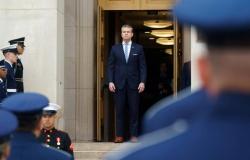This event took place at the Souk Sebt Oulad NEMMMA Souk Sebt, under the judicial district of Béni Mellal-Khénifra.
This scientific and professional meeting made it possible to highlight the multiplicity of issues related to land security in Morocco, in a context of rapid changes, especially in rural areas faced with increasing urbanization. This phenomenon has caused unregulated subdivisions, further complicating transactions and their legal documentation.
In his opening speech, Aïcha El Aazem, president of the Souk Sebt court of first instance, stressed the importance of this initiative bringing together the various actors in the judicial system. It insisted on the fact that the relationship between man and earth goes beyond the material aspect, constituting a base of social and economic stability, which requires a rigorous organization and evolutionary legislative supervision.
For his part, Maître Driss Trali, president of the Regional Council of Adouls near the Court of Appeal of Béni Mellal, said that guaranteeing land security requires effective urban planning and a clear land policy, stressing that land is an essential component of the success of public policies, in particular in terms of investment and regional planning.
For his part, Maître Saïd Saroukh, president of the Regional Council of Adouls at the Tangier Court of Appeal, praised professional cooperation between the Adouls and the judicial institution. He recalled that justice is no longer just a set of disputes, but also an administrative and societal player through what is called local justice today, calling for strengthening this role in the service of land security.
In the same vein, Maître Bouchaïb Louardi, King’s prosecutor near the Souk Sebt court of first instance, estimated that “the multiplicity of legal regimes and the resurgence of spoliation acts require a more rigorous approach to transactions”. He said that “the current land system needs legislative restructuring to restore confidence and reduce disputes”, arguing for strengthening coordination between the various stakeholders, an integrated national vision based on the complementarity of roles and a development of continuous training for softens and notaries in order to follow legal and technical developments.
The conference gave rise to various interventions by lawyers, land experts and administrative officials, which highlighted the obstacles to documentation of property titles, the multiplicity of legal references, as well as the difficulties encountered by citizens in land conservation procedures, thus creating a complex legal environment, prejudicial to confidence and investment.
The conference resulted in several recommendations, expressed by stakeholders, in particular the unification of the documentation system between softens and notaries, in order to ensure legal consistency and to simplify contractual procedures, clarification of the content of the circulars of the general conservative, to avoid divergent interpretations that can harm land security; the modification of article 4 of the Code of real rights, which poses practical problems affecting the documentation of legal acts; The revision of the provisions of the finance law relating to compensation for expropriation for public utility, taking into account legal equity and article 109 of the DAHIR of land conservation, by integrating the possibility of exercising extraordinary appeals in addition to the appeal and appeal in cassation; as well as the strengthening of the legal framework for the work of experts, in particular with regard to land evaluation within the framework of legal expertise.
These recommendations were widely welcomed by the participants, who insisted on the need to strengthen coordination between the different actors in the land sector, to develop continuous training of professionals and to consolidate the role of justice as guarantor of land security and social balance.
In addition, the participants welcomed the efforts made by the organizing committee and the engagement of stakeholders in the enrichment of the debate, calling for the pursuit of these scientific meetings to support the growing challenges of the land sector in Morocco.
H.T








